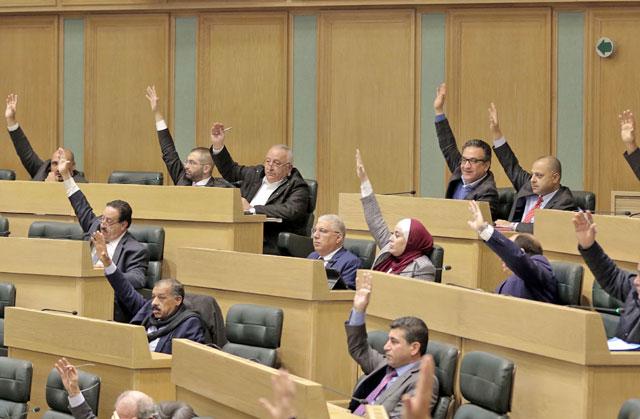You are here
Cybercrime bill redrafted with new hate speech definition, reduced slander penalty
By JT - Dec 11,2018 - Last updated at Dec 11,2018
AMMAN — The Cabinet on Monday approved a new draft amending the cybercrime law ahead of sending it to the Lower House, after having withdrawn a previous controversial bill from the Chamber the day before.
The amendments to the withdrawn bill, which was referred to Parliament by the previous government, touched on the definition of hate speech, as well as Article 11, which addresses the penalty for slander.
Under the new amendments, the definition of hate speech was revisited to now include “every writing and every speech or action intended to provoke sectarian or racial sedition, advocate violence or foster conflict between followers of different religions and various components of the nation”.
The previous definition of the crime, which was criticised for being “loose”, defined hate speech as “each statement or act that is prone to fuel religious, sectarian, ethnic or regional sedition; call for violence or justify it; or spread rumours against people with the aim of causing them, as a result, physical harm or damage to their assets or reputation”.
The new amendments also included a penalty not exceeding two years imprisonment for crimes listed in Article 11 of the original law, which currently imposes a minimum sentence of three months and does not stipulate a maximum punishment.
The amendment to the penalty prohibits detention, and would require a personal complaint against the suspect to be pursued by authorities, and the complainant shall file a lawsuit in his/her own personal capacity, while the prosecution shall be discontinued if the lawsuit is dropped, according to a Cabinet statement.
More so, the new amendments criminalised spreading rumours and false news, the penalty for which is a sentence of no less than three months and not exceeding two years.
Another amendment was made allowing people to criticise officials in relation to job duties, in accordance with the provisions of article (2/192) of the Penal Code, which states that if the slandering is only related to the job duties, and is proved to be so, then the slanderer shall be exonerated, otherwise he/she shall be condemned to the penalty prescribed for slandering.
As for comments on social media platforms, including comments on news websites’ pages, the draft law states that only the person who makes the comment is accountable.
Urgency status was given to complaints filed under the provisions of the new bill, in addition to the establishment of specialised court chambers to look into these cases.
Experts and activists criticised the amendments of the withdrawn bill in previous remarks to The Jordan Times, citing a “loose” definition to hate speech, privacy concerns and conflict with other laws that already stipulate penalties for crimes listed in the bill.
The UN’s Human Rights Council also voiced its unease regarding some articles in the previous bill at Jordan’s Universal Periodic Review, of which freedom of expression and the cybercrime law was a major issue of concern.
Protesters who rallied near the Fourth Circle over the weekend called for the withdrawal of the controversial bill, claiming it aims at “suppressing opinions”. A social media campaign was also launched last month under the banner “#withdraw_cybercrime_law”, describing it as “a crackdown on freedom of expression”.
Related Articles
AMMAN — The Lower House on Tuesday rejected the cybercrime law which was redrafted by the government in December last year in a bid to conta
AMMAN — The government on Sunday said it will withdraw the cybercrime draft law, which was referred to the Lower House by the previous gover
AMMAN — While a general consensus has been reached on the need to combat hate speech, concerns have been raised over what one might end up i
















